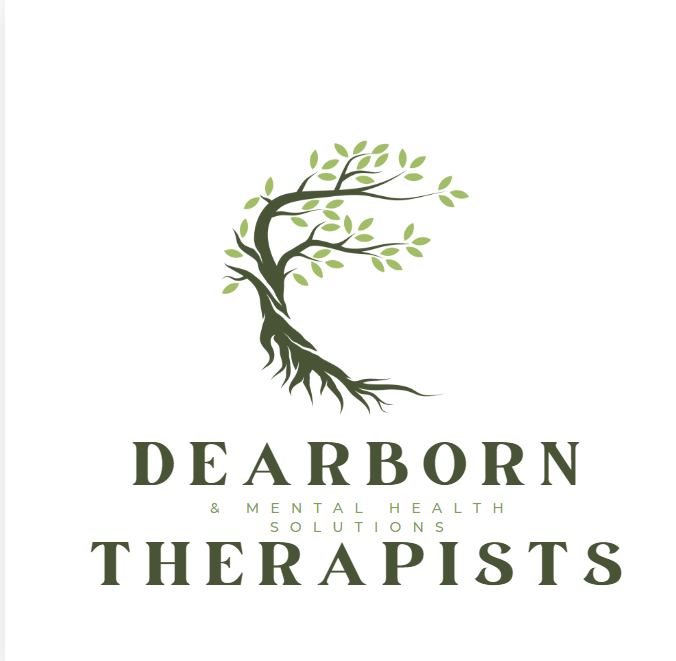7 types of Depression Therapy: Benefits, and Choosing the Right Path
Discover the 7 types of depression therapy, including CBT, DBT, and medication

Introduction
Depression is a complex, deeply personal experience affecting millions worldwide. For those seeking depression therapy, understanding the available options can help in choosing the best path to recovery. With various therapies, including talk therapy, cognitive-behavioral therapy (CBT), medication, and alternative treatments, it’s essential to understand the advantages and potential drawbacks of each.
This guide delves into the most common types of depression therapy, discussing who may benefit most from each and helping you or a loved one make an informed decision on the journey toward mental wellness.
1. Cognitive Behavioral Therapy (CBT)
Overview:
CBT is a structured, evidence-based form of psychotherapy that helps individuals identify and modify negative thought patterns and behaviors associated with depression. The goal is to reframe negative thinking into more constructive thoughts, improving mood and behavior over time.
How It Works:
A CBT therapist helps clients understand their automatic thoughts, beliefs, and how these influence their emotions and behaviors. Through exercises and homework, clients learn to challenge and replace these negative patterns.
Advantages:
- Evidence-Based: CBT is one of the most researched therapies for depression, with a strong track record of effectiveness.
- Skills-Based Approach: Clients learn practical skills that can be used long-term to manage symptoms.
- Short-Term: Often requires fewer sessions than other therapies (typically 12–20 sessions).
Disadvantages:
- Requires Commitment: CBT involves homework assignments, which may be challenging for those with severe depression.
- Doesn’t Address Underlying Causes: Focuses primarily on changing thought patterns, not necessarily delving into deep-rooted emotional issues.
Best For:
CBT is ideal for those experiencing mild to moderate depression who are motivated to engage in structured self-work. It can also be highly effective for people experiencing situational depression or anxiety alongside depression.
2. Psychodynamic Therapy
Overview:
Psychodynamic therapy is rooted in the belief that depression may stem from unresolved, often unconscious conflicts. By exploring these issues, individuals gain insight into their emotions and behaviors, leading to healing.
How It Works:
In this therapy, the therapist helps the client uncover subconscious influences on current thoughts and behaviors, often rooted in early life experiences. Clients gain self-awareness, which can lead to long-term changes in behavior and thought patterns.
Advantages:
- Deeper Insight: This approach delves into the root causes of depression, not just symptoms.
- Emphasis on Relationships: Helps clients understand relationship dynamics and attachment patterns, which can be impactful for interpersonal issues.
Disadvantages:
- Long-Term Commitment: Typically requires more sessions than other therapies, making it a long-term treatment.
- Can Be Emotionally Challenging: Revisiting painful memories or experiences can be difficult and emotionally taxing for some clients.
Best For:
Psychodynamic therapy may be best suited for individuals with chronic or recurring depression, especially those who suspect that their depression is connected to unresolved past issues, trauma, or long-standing relational conflicts.
3. Interpersonal Therapy (IPT)
Overview:
Interpersonal therapy focuses on improving relationships and social functioning to reduce symptoms of depression. It’s often recommended for depression that is closely related to life events, social issues, or relationship conflicts.
How It Works:
IPT typically addresses four key areas: grief, role disputes, role transitions, and interpersonal deficits. By improving communication skills and social interactions, clients learn to navigate relationships more effectively, which can alleviate depression.
Advantages:
- Structured and Short-Term: Generally completed in 12–16 weeks, IPT is a relatively short therapy option.
- Focus on Social Skills: Emphasizes practical communication and relationship skills that can improve overall social functioning.
Disadvantages:
- Limited Scope: Doesn’t address underlying causes of depression that aren’t related to interpersonal issues.
- Not Suitable for All Types of Depression: May not be as effective for depression that doesn’t stem from relationship issues or life events.
Best For:
IPT is particularly helpful for people whose depression stems from grief, relational conflicts, or major life changes (such as divorce, job loss, or moving). It’s also effective for those with a history of relationship struggles.
4. Dialectical Behavior Therapy (DBT)
Overview:
Initially developed for borderline personality disorder, DBT has proven effective in treating various mental health issues, including depression. DBT emphasizes emotional regulation, mindfulness, and interpersonal effectiveness.
How It Works:
is structured around four main skills: mindfulness, distress tolerance, emotional regulation, and interpersonal effectiveness. Through these skills, clients learn to cope with negative emotions and reduce self-destructive behaviors often associated with depression.
Advantages:
- Effective for Severe Cases: Particularly useful for those who experience intense emotional distress, self-harm tendencies, or suicidal ideation.
- Skill-Building: DBT provides clients with practical tools to manage difficult emotions and improve relationships.
Disadvantages:
- Intensive and Time-Consuming: DBT often requires a significant time commitment, with weekly individual and group therapy sessions.
- May Not Address Root Causes: Focuses on coping strategies rather than the underlying causes of depression.
Best For:
DBT is suitable for individuals with severe depression, especially those who struggle with emotional regulation, self-harm, or suicidal thoughts. It’s also helpful for those who experience depression alongside other mood disorders or personality disorders.
5. Medication Management
Overview:
Antidepressant medications are often prescribed to help regulate mood and alleviate symptoms of depression, especially when therapy alone is insufficient.
How It Works:
Medications like selective serotonin reuptake inhibitors (SSRIs), serotonin-norepinephrine reuptake inhibitors (SNRIs), or tricyclic antidepressants work to balance brain chemicals associated with mood regulation. Medication can stabilize mood, making it easier for clients to engage in therapy.
Advantages:
- Fast Relief of Symptoms: Medications can provide symptom relief within weeks, which can be helpful for severe cases.
- Useful for Biologically-Based Depression: For individuals with biological or genetic factors contributing to depression, medication can address these imbalances effectively.
Disadvantages:
- Side Effects: Antidepressants may have side effects, such as weight gain, fatigue, or sexual dysfunction.
- Dependency Risk: Some individuals may become reliant on medication without addressing the underlying causes of their depression.
Best For:
Medication is most suitable for individuals with moderate to severe depression, especially if their symptoms prevent them from engaging in therapy effectively. It’s also beneficial for individuals with depression that has a strong biological or genetic component.
6. Mindfulness-Based Cognitive Therapy (MBCT)
Overview:
MBCT combines mindfulness practices with cognitive therapy techniques. The goal is to help individuals become more aware of their thoughts and feelings, reducing depressive symptoms by preventing rumination and relapse.
How It Works:
Clients learn mindfulness techniques, such as breathing exercises and body scans, alongside cognitive strategies for reframing negative thoughts. MBCT is often used as a relapse-prevention strategy, especially for those with recurrent depression.
Advantages:
- Reduces Risk of Relapse: Particularly effective in preventing the recurrence of depression.
- Enhances Self-Awareness: Clients gain greater insight into their thought patterns and emotions, which can improve mood regulation.
Disadvantages:
- Requires Self-Discipline: Mindfulness practices need regular practice, which may be challenging for some.
- Less Effective for Severe Depression: MBCT may not provide immediate relief for individuals in the depths of a severe depressive episode.
Best For:
MBCT is ideal for individuals with recurrent depression who want to prevent relapse, especially those who are open to mindfulness and meditation practices. It’s also suitable for those with mild to moderate depression.
7. Electroconvulsive Therapy (ECT)
Overview:
ECT is a medical treatment that involves brief electrical stimulation of the brain, typically used in cases where other treatments have been ineffective. It’s often reserved for severe, treatment-resistant depression.
How It Works:
Under anesthesia, the patient receives a controlled electric current, which induces a brief seizure. This is believed to cause changes in brain chemistry that can rapidly relieve severe depression.
Advantages:
- Highly Effective for Severe Depression: ECT can provide relief when other treatments have failed.
- Rapid Results: ECT can relieve symptoms faster than medication or therapy, which is critical for individuals with severe symptoms.
Disadvantages:
- Side Effects: ECT may cause memory loss, confusion, and other cognitive side effects.
- Stigma: Despite its effectiveness, ECT is often stigmatized, which may deter some individuals.
Best For:
ECT is reserved for individuals with severe, treatment-resistant depression or those who need rapid symptom relief due to suicidal ideation or severe functional impairment.
Choosing the Right Therapy
When selecting the right therapy for depression, several factors come into play, including the severity of symptoms, personal preferences, and underlying causes. A licensed mental health professional can help assess which treatment options are best suited to individual needs.
For many, a combination of therapies provides the most effective results. For example, someone with moderate depression might combine CBT with medication, while another with severe depression might benefit from DBT alongside medication.
FAQs About Depression Therapy
1. Can I combine different types of therapy?
Yes, combining therapies like medication with CBT or DBT can enhance the effectiveness of treatment. Many individuals find a multi-faceted approach beneficial.
2. How long will it take to see results?
The timeline varies depending on the therapy type, severity of depression, and individual progress. Some therapies, like medication, can take a few weeks, while CBT and other forms of therapy may take a few months.
3. Are there natural alternatives to medication?
Yes, therapies like MBCT, mindfulness practices, exercise, and lifestyle changes can complement or sometimes replace medication for mild to moderate cases.
4. Do all therapists offer every type of therapy?
No, therapists often specialize in certain types of therapy. It’s important to choose a therapist trained in the specific therapy that best fits your needs.
5. Is depression therapy covered by insurance?
Most insurance plans cover some forms of depression therapy, including CBT and medication management. Checking with your provider is essential to understand the coverage details.
Conclusion
Depression therapy is a powerful tool in the journey toward mental health and well-being. Each therapy type offers unique advantages and may be suitable for different individuals. Whether you’re seeking immediate relief, long-term insight, or practical skills for managing depression, there’s a therapy that can meet your needs. Reaching out to a mental health professional can help you determine the most effective, personalized approach to living a fuller, more fulfilling life.
